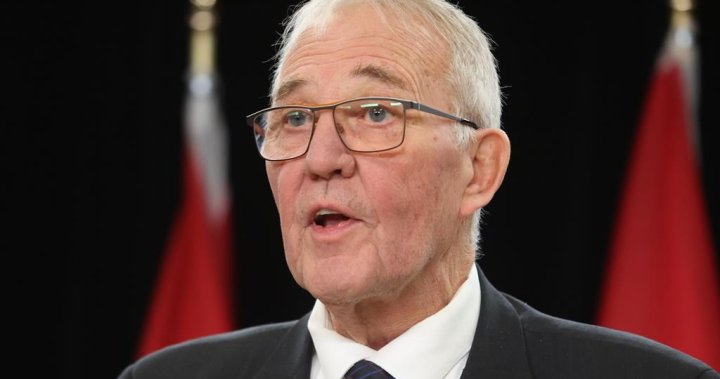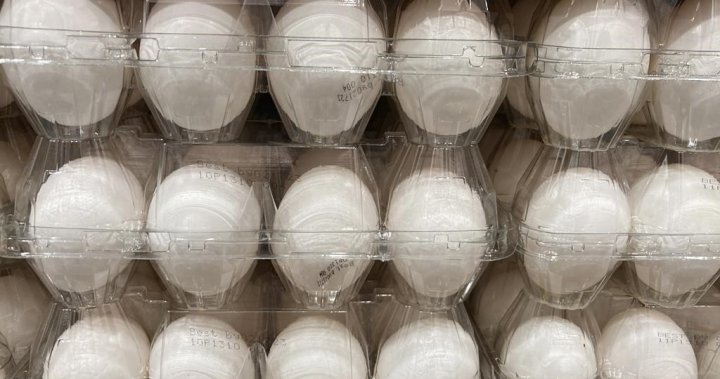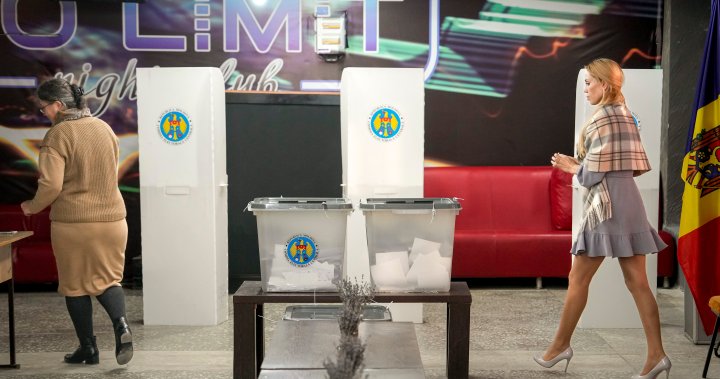Moldova’s voters narrowly voted to secure the country’s path to European Union membership, election data showed on Monday, after a vote that nearly caused a major setback for the pro-Western president, who accused “criminal groups” of trying to undermine the vote.
With 99.41% of the total 1.4 million votes counted in the European Union referendum held on Sunday, the percentage of “yes” votes reached 50.39%, compared to 49.61% who voted “no,” according to the Central Electoral Commission.
A “no” vote appeared to be expected until the remaining few thousand votes from the country’s large community were counted. The loss was a political disaster for the pro-Western government, which had strongly supported the pro-EU campaign.
President Maia Sandu on Monday repeated claims that unprecedented voter fraud and foreign interference had undermined the voting process, calling it a “despicable attack” on Moldova’s sovereignty.
Story continues below ad
“Unfortunately, the judicial system failed to do enough to prevent election fraud and corruption,” she said in a press conference. “Here too, we must draw a line, correct the mistakes that have been made, and learn the lesson. We heard you: we know that we must do more to fight corruption.
Moldovan authorities claim that Moscow has intensified its “hybrid warfare” campaign to destabilize the country and derail the EU’s course. The charges include financing pro-Moscow opposition groups, spreading disinformation, interfering in local elections and supporting a major vote-buying scheme.
In Brussels, the European Commission, the executive authority of the European Union, said that its services also noted Russian interference in Moldova, and affirmed its continued support for Moldova in the process of joining the European Union.
Spokesman Peter Stano said: “This vote took place against the backdrop of unprecedented interference and intimidation by Russia and its agents, with the aim of destabilizing the democratic processes in the Republic of Moldova.”

What’s next for Ukraine with the EU backing its bid to join the bloc?
Stano told reporters that allegations of vote buying, busing of voters and disinformation are only the latest forms of Russian interference, and that attempts to undermine Moldova and its support for the European Union have been ongoing for months.
Story continues below ad
In the presidential race held at the same time, Sandu won the first round with 42% of the votes out of 11, but failed to win an absolute majority. She will face Alexander Stoyangelo, a pro-Russian former prosecutor who led in opinion polls with about 26% of the vote, in a runoff on November 3.

Get breaking national news
For news affecting Canada and around the world, sign up to get breaking news alerts delivered to you right as they happen.
By the time polling stations closed at 9pm on Sunday, more than 1.5 million voters – about 51% of eligible voters – had cast their ballots, according to the Central Electoral Commission.
Christian Kanter, a Moldovan associate professor of international relations at the University of Auckland, told the Associated Press that previous polls may have “overestimated pro-EU sentiment” within Moldova, and the referendum could have failed to pass without votes from outside the country.
“It will be particularly problematic because… it will feed into the narratives promoted by the Kremlin and pro-Russian forces,” he added.
Trending now
-

Halifax police investigate sudden death inside Walmart, company ‘distressed’
-

A 19-year-old employee has died at a Walmart in Halifax, and the store is closed until further notice

A Moldovan politician says his country needs “strategic relations” with Russia
US National Security spokesman John Kirby echoed concerns about Russian interference this week, saying in a statement that “Russia is actively working to undermine Moldova’s elections and its European integration.” Moscow has repeatedly denied its interference in Moldova.
Story continues below ad
In early October, law enforcement authorities in Moldova said they had uncovered a massive vote-buying scheme orchestrated by Ilan Shor, an exiled pro-Russian exile currently residing in Russia, in which he paid €15 million ($16.2 million) to 130,000 individuals to undermine the two countries. . Ballot cards.
Shor was convicted in absentia last year of fraud and money laundering and sentenced to 15 years in prison in the case of the disappearance of $1 billion from Moldovan banks in 2014. He denied the charges, saying the payments were legal and citing the right to liberty. Of expression. The pro-Russian populist Shor Party was declared unconstitutional last year and banned.
On Thursday, Moldovan authorities foiled another plot in which more than 100 young Moldovans were trained in Moscow by private military groups on how to provoke civil unrest around the two votes. Some also attended “more advanced training in guerrilla camps” in Serbia and Bosnia, and four people were detained for 30 days, police said.
A pro-Western government has been in power in Moldova since 2021, a year after Sandu won the presidency. Parliamentary elections are scheduled to be held next year.
Moldova, a former Soviet republic with a population of about 2.5 million, applied to join the European Union following Russia’s large-scale invasion of neighboring Ukraine on February 24, 2022, and received candidate status that summer alongside Ukraine. Brussels agreed in June to begin membership negotiations.
& Edition 2024 The Canadian Press

















